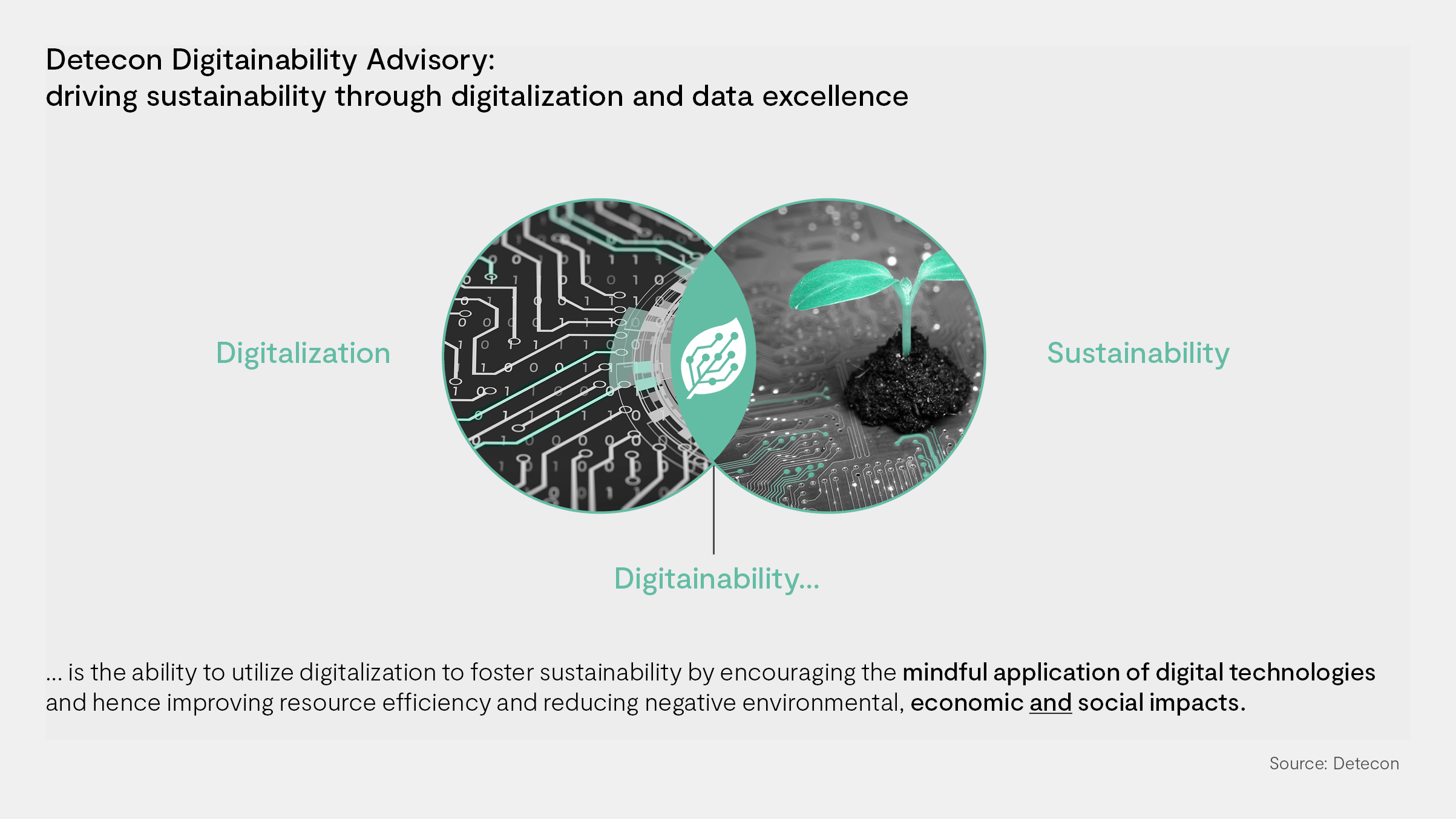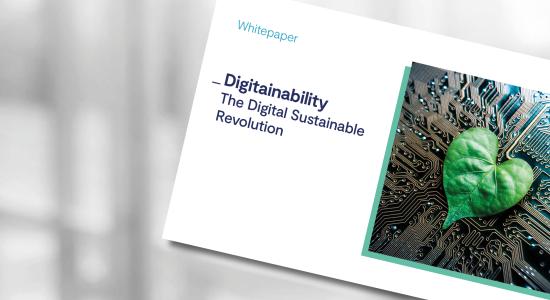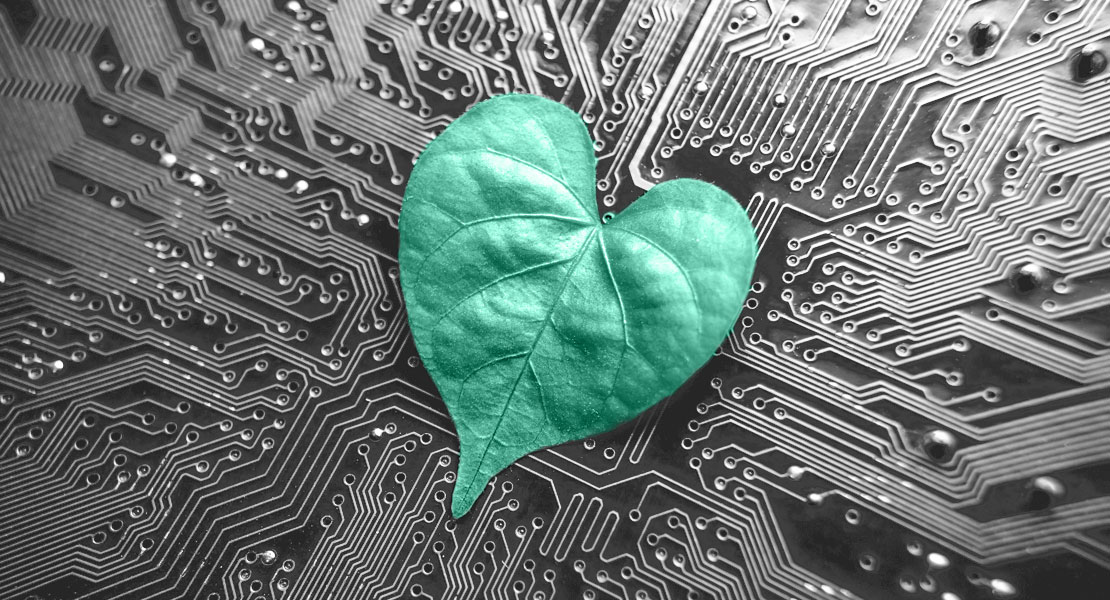- Home
- Consulting
- Consulting Areas
- Sustainability
- Digitainability
Digitainability
Towards a greener and more digital world
Digitalization and sustainability are two megatrends of our generation that are essential for shaping a better, safer future for all. These two trends should go hand in hand to make the future greener and safer for everyone. Ultimately, the combination of the two will have a greater impact than merely the sum of the two parts.
Detecon's concept of Digitainability does exactly that. Originally conceived by the Bonn Alliance for Sustainability Research (Prof. Jakob Rhymer and today´s Detecon consultant Shivam Gupta), this integration of the terms digitalization and sustainability designates the interplay between digitalization and sustainable development and their fruitful interrelationship.

The potential of Digitainability
Detecon uses the concept of Digitainability to tap the potential of digitalization for conscious growth and mindful development — promoting sustainable economic growth, minimizing negative environmental impact, and assuming social responsibility.
Data-driven decision-making
Collecting and analyzing data on a large scale with the aid of digitalization enable informed decision-making. Decisions based on context-related information contribute to broadened sustainability.
Renewable energy
Optimizing the use of renewable energy sources such as solar and wind power through digitalization accelerates the reduction of carbon emissions, supporting the transition to a low-carbon, green economy.
Connected cities
Digital technologies with a focus on sustainable values help to create sustainable smart cities that are more energy-efficient, barrier-free, economically viable, and environmentally friendly. Technologies such as sensors, big data analytics, and automation can optimize resource consumption and waste reduction.
Environmentally-friendly procurement
Companies can reduce their environmental impact by procuring environmentally-friendly, sustainable materials and products. Digitalization offers to companies effective tools for the measurement and evaluation of the sustainability of their supply chain during their search for sustainable suppliers and products.
Green ICT
Companies can take advantage of services that aid them in the more sustainable and environmentally-friendly use of ICT. They can help to mitigate negative environmental impacts of ICT activities by reducing energy consumption, generation of e-waste, and production of carbon emissions.
Circular economy
Digitalization can give rise to a circular economy. In this type of economy, optimization of consumption and tracking of resources contribute to the minimization of waste and greater recycling of resources. These factors can reduce negative environmental impacts in the life cycle of products.
E-commerce
Data intelligence can play its part in strengthening sustainable consumer behavior as it opens the door to the development of e-commerce platforms providing access to sustainable products and services.
Education and awareness
Fast digital communication technologies, when used mindfully, can help to disseminate important information rapidly. This increases transparency, raises awareness, and educates people about the decisions and actions required for the development of a sustainable future. Raising awareness is also an element for the creation of a culture that leaves no one behind. It is indispensable for the genuine realization of the sustainability concept.







